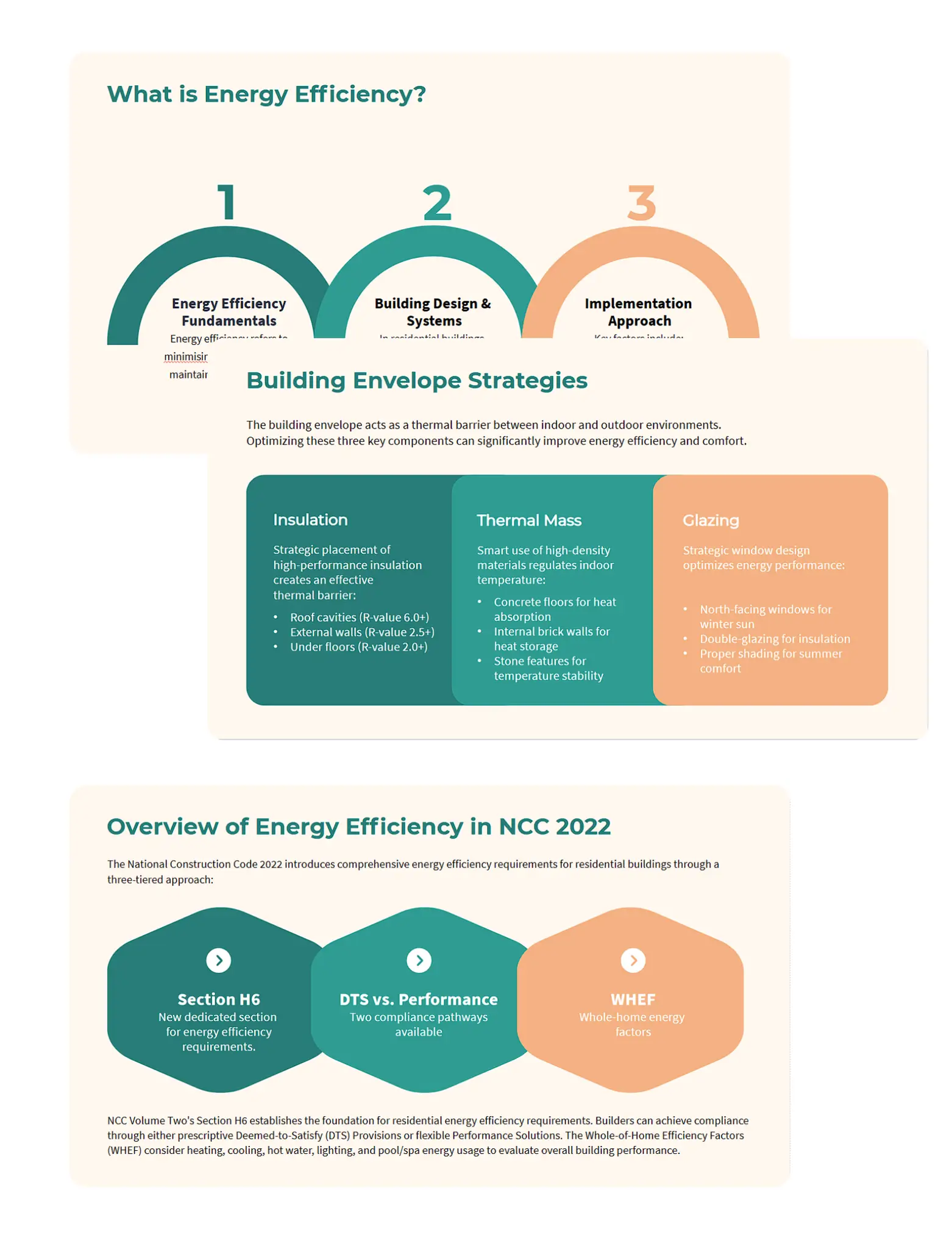Course Content
★★★★★
This CPD course provides an essential introduction to energy efficiency principles in residential buildings, focusing on compliance with NCC 2022 and the Nationwide House Energy Rating Scheme (NatHERS). Participants will explore key topics, including thermal performance, passive design strategies, and whole-of-home energy efficiency considerations. The session will break down Deemed-to-Satisfy (DTS) Provisions vs. Performance Solutions, explaining how to achieve compliance through effective insulation, glazing, ventilation, and material choices.

This session is designed for

Architects

Building Designers

Builders

Energy Assessors
By the end of this course, participants will be able to clearly define essential energy efficiency principles and understand their importance in residential building design. They will also be equipped to identify and apply NCC 2022 and NatHERS compliance requirements, and explore practical, cost-effective strategies—such as passive design and smart material choices—for improving home energy performance. Through real-world examples, learners will gain the skills to confidently integrate energy-efficient solutions into their design, building, or assessment practices.
This ensures that CPD efforts align with professional regulatory requirements.
What’s Included
The course covers renewable energy integration, smart home technology, and practical strategies to improve energy efficiency in new and existing homes. Through real-world case studies and interactive discussions, professionals gain actionable insights to apply energy-efficient solutions to their projects. This session is designed for architects, building designers, builders, and energy assessors looking to enhance their knowledge and meet the latest energy efficiency requirements.

Why Take This CPD Session?

This CPD session equips professionals with practical knowledge on energy efficiency principles, NCC 2022 compliance, and NatHERS rating requirements to meet evolving industry standards.

By learning effective design strategies, material choices, and whole-of-home efficiency approaches, participants can create more sustainable, cost-effective, and high-performing residential buildings.

Staying updated with regulatory changes and best practices ensures improved project outcomes, greater energy savings, and enhanced occupant comfort.
Professional development is an investment in career growth and regulatory compliance. Take the next step today.